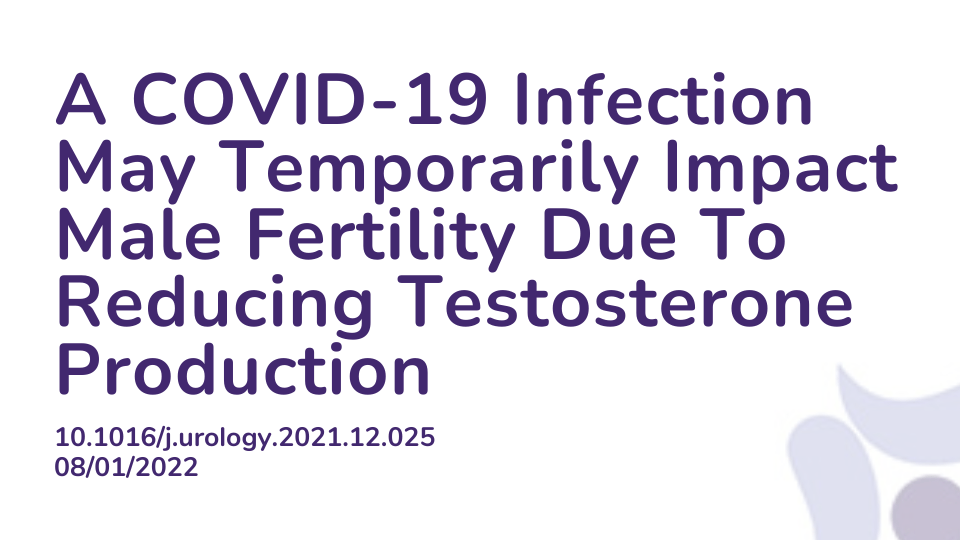Summary:
COVID-19 is an ongoing health concern with studies still being published at a rapid rate concerning its economic, public health and individual health ramifications. This narrative review examines the current literature available on any potential link between COVID-19 and male infertility. The authors look at varying contributing factors such as access to healthcare during the pandemic, hormonal regulation, inflammation, other infections, semen quality and medical interventions for COVID-19. Whilst it is still a largely unknown area, the authors review of the available evidence suggests that a COVID-19 diagnosis does temporarily impact male infertility due to a reduction in testosterone and testis production. It is hypothesized that the reduction in testosterone production may be due to systemic or local inflammation caused by COVID-19. Moving forward, further studies are required to clarify whether there are long term effects of the COVID-19 infection on male infertility, as well as any treatments and vaccines that might be contributing to inflammation as well.
Abstract:
COVID-19, the clinical condition caused by the SARS-CoV-2 virus, has been associated with massive cytokine storm and damage to multiple organ systems. Although evidence for the detection of SARS-CoV-2 virus in the testis remains scarce, testicular damage and dysregulation of gonadotropins associated with inflammation has been reported. Additionally, as a result of the rapidly evolving pandemic, frequently updated medical interventions and public policies leading to delays of care can play a role in fertility. This narrative review aims to summarize the current literature on how COVID-19 may influence male fertility.
Article Publication Date: 08/01/2022
DOI: 10.1016/j.urology.2021.12.025



